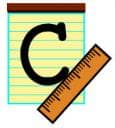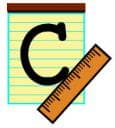 By Tom Krause
By Tom Krause
I am constantly telling stressed-out students to keep things in perspective. I make these reassurances as a way of easing the minds of many students who feel as if they are falling behind expectations heaped on them by society.
Mandated state testing, college entrance exams and their perceived need for higher and higher grade point averages have raised the anxiety levels felt by many of our average students.
When I was in school, a C grade meant satisfactory or average work. A C grade, whether a plus or a minus, was the most common grade then. Now if a student gets a C grade it is viewed by the student as representing below-average work. Nowadays if you counted all the grades listed on students’ report cards, I’m betting you’d find the least given would be a C. All I seem to hear about are A’s, B’s, D’s and F’s.
Just like the disappearing middle class in America, the place for the average student seems to be fading away in today’s schools. But why?
Inflated Grades
Too much focus is placed on state test scores and college entrance standards with not enough focus on the true level of the students. Raising standards on students is a good thing only if they are raised based on where students actually are in their stages of development.
Goals should be set on a realistic past. A sports team that loses a couple games during a season can realistically set a goal for an undefeated season the next year. But for a team that has gone winless one season to expect to go undefeated the next year is probably unrealistic.
A student who struggles in basic mathematics should be realistic about which math class he or she takes next. Students with low grades have admitted to me that in some of their classes the material is simply too hard for them. When I asked them why they enrolled in that class, their response was because it was a requirement for college. Taking a math class that may be too advanced for their abilities just because it will meet a college admissions standard may lead to frustration, failure and a lowered self-concept. Education should not be in the business of promoting frustration and failure. Education should be about maximizing learning for each individual as its ultimate objective.
Accelerated Curriculum
Racing through a curriculum to cover material on statewide tests cheats the average student.
Learning fundamentals takes time and repetition. Sometimes repetition may seem boring, but it is what leads to solid execution. A gifted student may be able to skip over the fundamentals and still achieve. The average student, however, needs them.
In 5th grade I played for a basketball coach who spent 90 percent of every practice session drilling us on fundamental skills. At the time we didn’t understand why. All we wanted to do was scrimmage and play games. In high school we realized the wisdom of his method. We were so much better prepared for the competition because of the fundamentals we had learned.
Without repetitive work on basic skills, students may become jacks of all trades but masters of none. Racing too fast through a curriculum simply to cover all the material for a statewide testing standard shortchanges average students out of future success at a higher level. Students may achieve early but will never reach their full potential.
Homework Myths
Too much reliance on unsupervised work results in less learning and more frustration. I am not saying students don’t need to work independently to tackle their academic assignments. However, I do have a problem with unsupervised homework.
Much of the frustration I hear from students concerning homework comes when they don’t understand and no one is available to ask for help. They immediately blame the teacher for not explaining it well enough.
If homework were turned into class work, this problem could be alleviated. Frustrated students who end up copying other students’ work to collect homework points get the help they need from a professional equipped to give it. Instead of turning kids into copy machines, class work could bring the focus back on the comprehension level of each student.
At a time when public school officials worry about proving the worth of public education to society, maybe the first issue we should address is the average student in the classroom. The only real standard should come when a student is asked, “Do you feel like you are learning?” The only acceptable response should be “Yes.”
Tom Krause is health education coordinator in the Nixa R-II School District, 205 North St., Nixa, MO 65714. E-mail: tkrause@mail.nixa.k12.mo.us. He is the author of Touching Hearts, Teaching Greatness.
Was this Useful for You?
If so, subscribe to our mailing list and get regular updates from us!
Thank you for subscribing.
Something went wrong.





Hey! That’s a really interesting article. And it’s dead-on. Although, I was lucky enough to get B’s and A’s in everything except Science and Math… I did get D’s. No C’s! Weird.
I have a college blog as well. Would you be interested in doing a link exchange?
http://killjill.wordpress.com
Terrific information as always, John. The bell curve does indeed seem to be defied by the commonness of students appearing at the borders. I agree that being realistic about your own strengths and weaknesses is the only way for a student to continue to advance through his or her education.
Will I be seeing you again in next week’s Carnival of College Admissions? This article would make a great addition.